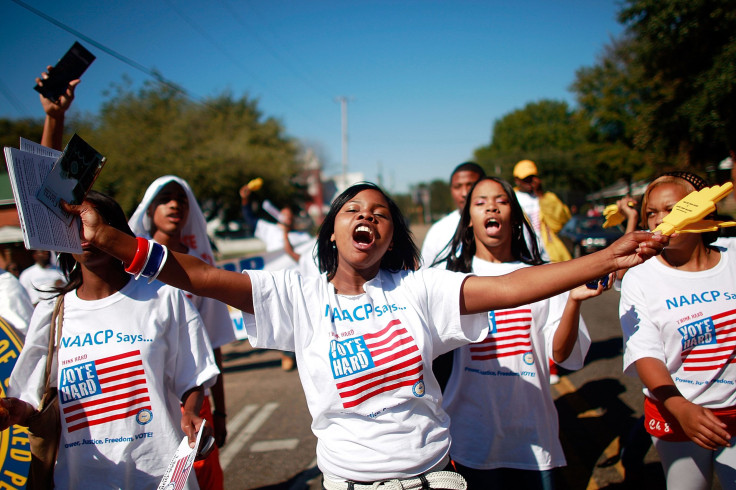Black History Month Facts 2017: Little-Known Trivia About The Holiday Honoring African-Americans

Wednesday kicks off the United States' Black History Month, an annual observance honoring African-Americans and the roles they've played in the country throughout the past several centuries. Celebrations and activities are often tailored toward schoolchildren, but the lessons they learn about equality and diversity are universal.
"Events that occur during Black History Month bring awareness of the times, enabling us as Americans to celebrate each other based on character and the content of their hearts, not the color of their skin," Tameika Culler Morris, co-chair of the Dr. Martin Luther King Jr., Planning Committee at Southeast Missouri State University said in a news release. "We all have something positive to give, we just need to allow time for it to reveal itself."
Read more about Black History Month below:
Black History Month started as Negro History Week in the 1920s. Carter G. Woodson, a historian and author, created the celebration and timed it to coincide with Frederick Douglass' Feb. 14 birthday and Abraham Lincoln's Feb. 12 birthday, according to TIME.
It eventually expanded into a monthlong observation.
Then-President Gerald Ford made Black History Month official in 1976. In his decree, he wrote that people should honor the contributions of black Americans to society. "In celebrating Black History Month, we can take satisfaction from this recent progress in the realization of the ideals envisioned by our Founding Fathers," he said. "But, even more than this, we can seize the opportunity to honor the too-often neglected accomplishments of black Americans in every area of endeavor throughout our history."
There are 100 historically black colleges and universities, called HBCUs, in the U.S. They have 294,000 students, according to the National Center for Education Statistics.
The first black man to graduate from college was John Chavis in 1799. He later opened a private school, according to blackpast.org.
African-American inventors were behind the closed-circuit TV, street mailbox, potato chip and blood bank, according to the Huffington Post.
The Emancipation Proclamation was issued in 1863, but the 13th Amendment formally abolishing slavery wasn't ratified until 1865. It read "Neither slavery nor involuntary servitude, except as a punishment for crime whereof the party shall have been duly convicted, shall exist within the United States, or any place subject to their jurisdiction."
The NAACP was founded Feb. 12, 1909. Its current CEO is Cornell William Brooks.
About 13 percent of the U.S. population identified as black or African-American alone in 2015, according to the Census Bureau.
The first African-American explorer to go to the North Pole was Matthew Henson, who codiscovered it alongside Robert Peary in 1909.
The United Kingdom also has a Black History Month, but it takes place in October.
Martin Luther King, Jr., a civil rights hero, went to jail 29 times for his cause, according to the History Channel.
There have been 10 African-American senators: Hiram Revels, Blance K. Bruce, Edward Brooke, Carol Moseley Braun, Barack Obama, Roland Burris, Tim Scott, William "Mo" Cowan, Cory A. Booker and Kamala Harris, according to the Senate website.
Harris was sworn in Jan. 3.
© Copyright IBTimes 2025. All rights reserved.






















